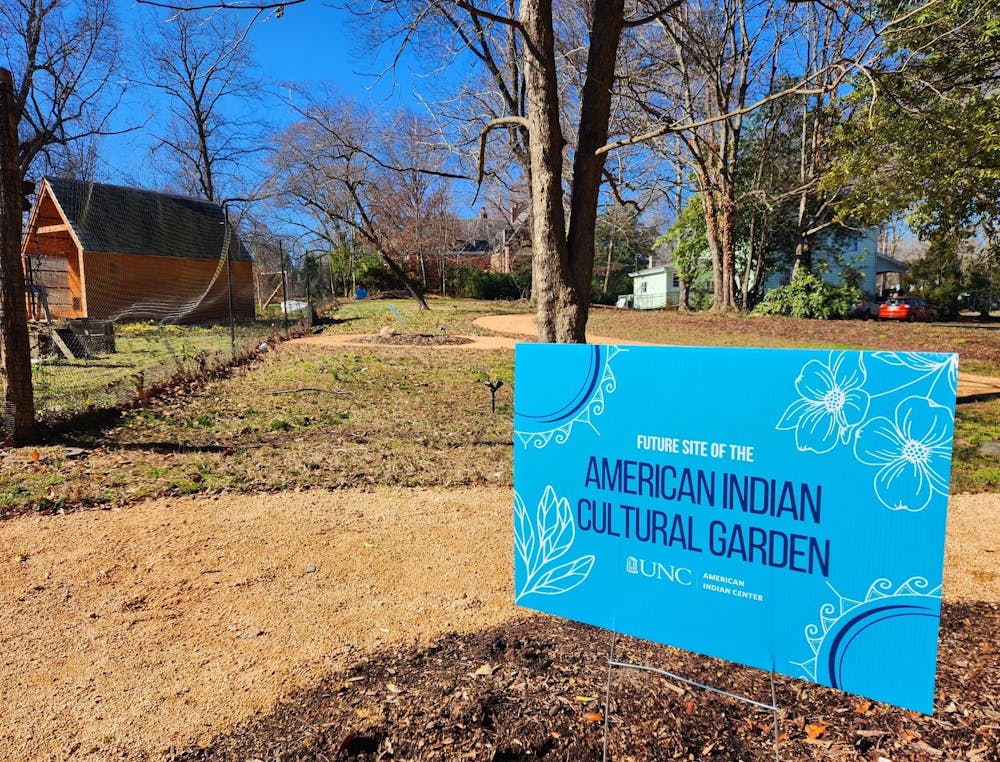Infrastructure for the American Indian Cultural Garden — a partnership between the American Indian Center at UNC and North Carolina Botanical Garden — is on track to be completed by the end of 2024.
Marissa Carmi, associate director for the AIC, is a citizen of the Oneida Nation of Wisconsin. She said that while the walkways, seating area and plant beds will be in place by the end of the year, putting in plants and watching them grow is a long-term project.
“One of our friends at the NCBG said a garden is never really done,” Carmi said.
The AIC’s website states that the garden is intended to provide a gathering place to celebrate Indigenous ecological knowledge, support Indigenous students in their adjustment to campus life and educate the greater community. The garden is located directly across from the AIC and hugs the Carolina Community Garden.
Carmi said that the garden helps address the feeling of invisibility some Native undergraduate students, graduate students and faculty feel on campus.
Cheyanne Jacobs, who graduated from the University in 2023 and is a member of the Waccamaw Siouan and Coharie tribes of North Carolina, said that the American Indian community is often overlooked despite the contributions they make to each other, the University and the land. She said she felt that there could be a tremendous amount of more support for UNC's American Indian community.
The garden’s final project report includes both private spaces and gathering areas, designed to be buffered from each other. The private areas provide a quiet spot for reflection, while the design also includes space for groups to hold drum circles and meetings.
Jacobs said that she believes the garden will have a lasting impact on the American Indian community at UNC and will serve as a “home away from home” that is reminiscent of community gardens present within many tribal communities.
Carmi said that plans have been made for professors to conduct classes within the garden and for the area to be included in an upcoming symposium on Native people and plants. She also said that the garden will be available for exploration during the AIC’s annual welcome extravaganza, an event that is part of UNC's Week of Welcome at the beginning of the fall semester.




